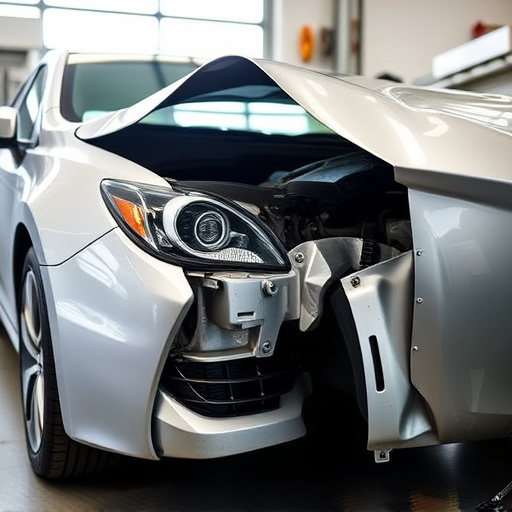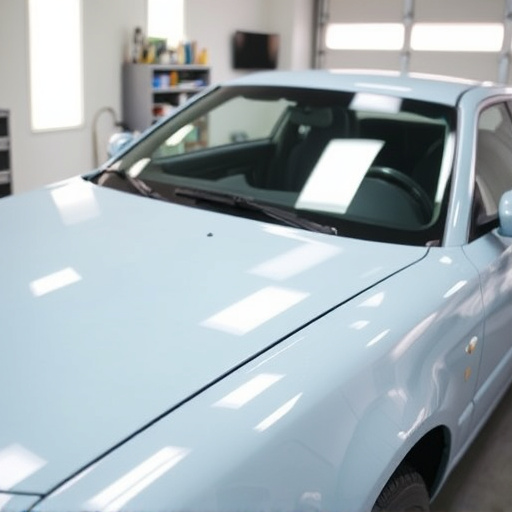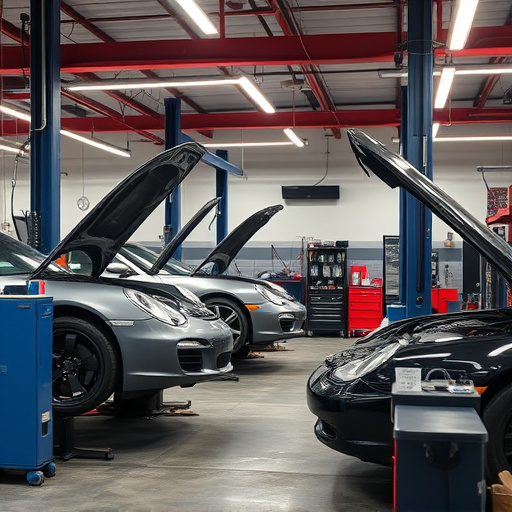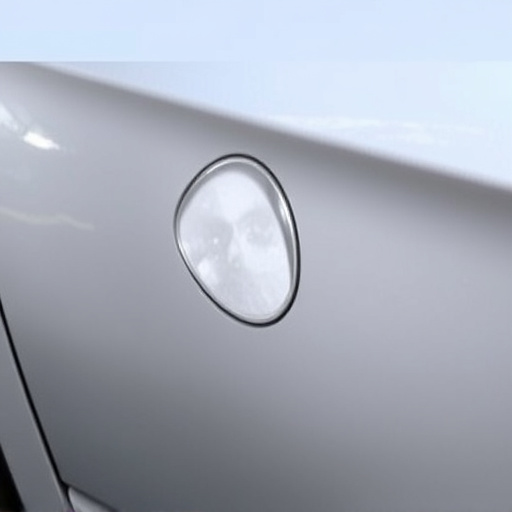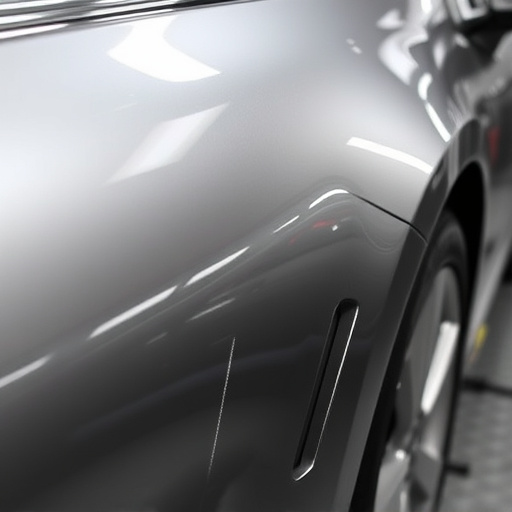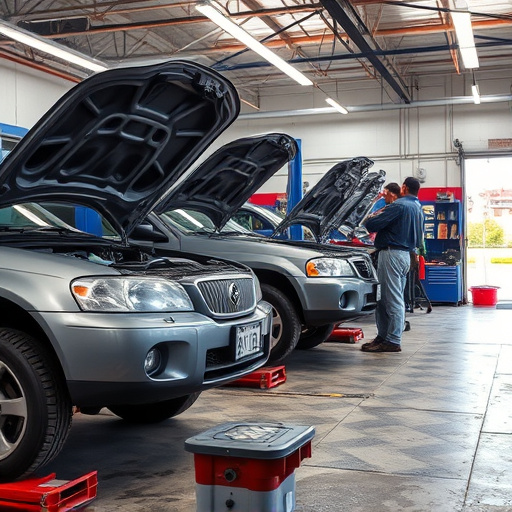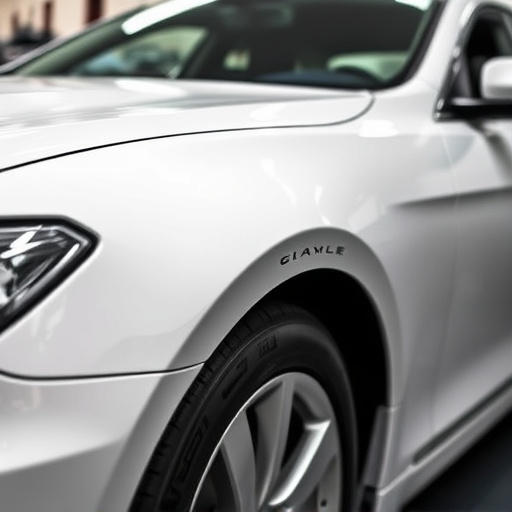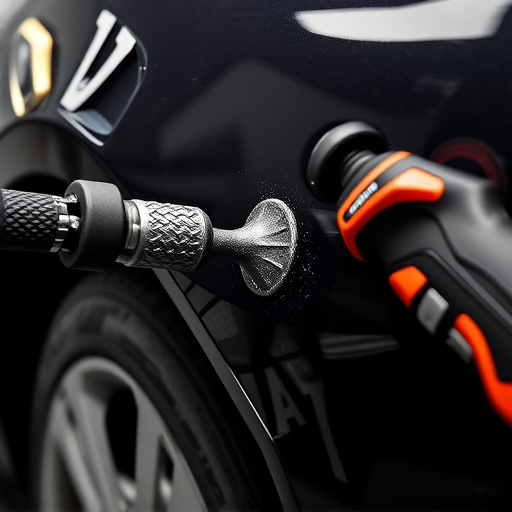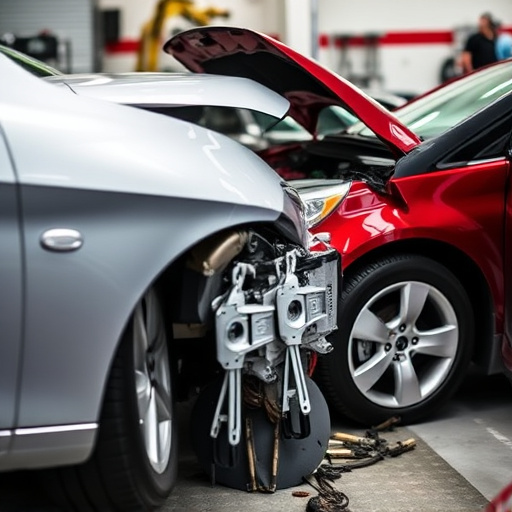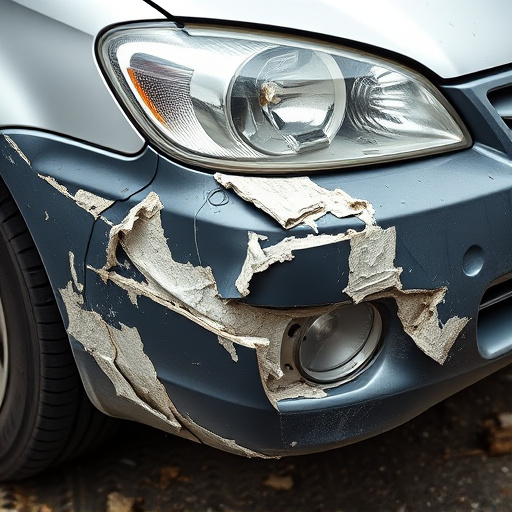Tesla's Aluminum Welding Certification program raises auto repair standards with specialized training for technicians on advanced techniques using high-quality materials, ensuring structural integrity and aesthetic satisfaction for repairs addressing common issues like fender benders or hail damage, ultimately prioritizing customer safety and satisfaction.
Tesla’s adoption of aluminum for key components has driven a need for robust welding standards. This article explores Tesla’s Aluminum Welding Certification program, designed to prevent common repair defects and ensure high-quality vehicle construction. By focusing on standardization and quality assurance through certification, Tesla aims to maintain its reputation for innovative and reliable electric vehicles. We delve into the root causes of typical repair issues and highlight how certification programs play a crucial role in maintaining vehicle integrity.
- Tesla's Aluminum Welding Standardization
- Common Repair Issues: Root Causes & Prevention
- The Role of Certification in Quality Assurance
Tesla's Aluminum Welding Standardization
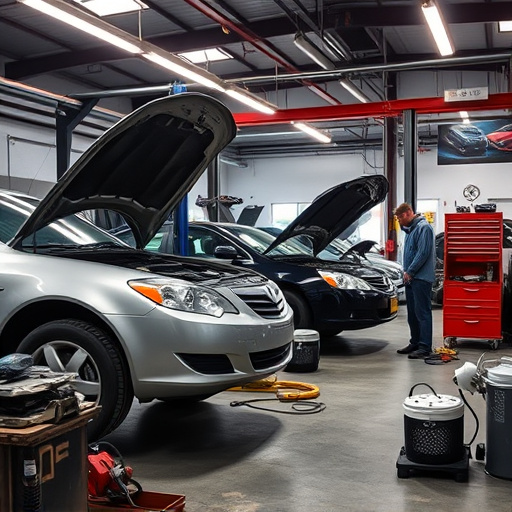
Tesla has set a new standard for quality and innovation with its Tesla Aluminum Welding Certification program. This initiative ensures that all aluminum welding repairs on Tesla vehicles meet the company’s rigorous standards, preventing common defects often found in auto repair shops. By implementing this certification, Tesla is not only maintaining its reputation for excellence but also ensuring customer safety and satisfaction.
The process involves specialized training for technicians, who learn advanced welding techniques tailored to Tesla’s aluminum-intensive vehicle designs. This standardization eliminates variability among repair facilities, guaranteeing that every weld is of the highest quality. For those seeking reliable auto repair near them or considering a vehicle restoration, knowing that Tesla prioritizes such precision can offer peace of mind.
Common Repair Issues: Root Causes & Prevention
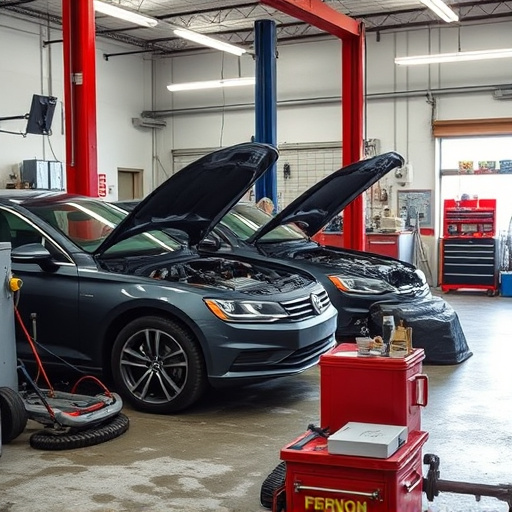
Tesla aluminum welding certification plays a pivotal role in addressing common repair issues that often arise from car accidents like fender benders or hail damage repair. Many traditional repair methods involve metal fabrication techniques that can lead to defects such as weak joints, misaligned panels, and inconsistent surface finishes. These problems not only compromise the structural integrity of the vehicle but also affect its aesthetic appeal.
The root causes of these issues are multifaceted. Poor welding practices, including inadequate heat input, incorrect electrode selection, and insufficient travel speed, can result in underfilled welds, porosity, and other defects. Moreover, the use of substandard materials or improper preparation of metal surfaces can further exacerbate the problem. By contrast, a Tesla aluminum welding certification ensures that technicians are trained in advanced welding techniques, utilizing specialized equipment and high-quality materials. This comprehensive training addresses these root causes, preventing repair defects and ensuring the longevity and durability of car body repairs, whether it’s for a minor fender bender or more extensive hail damage repair.
The Role of Certification in Quality Assurance
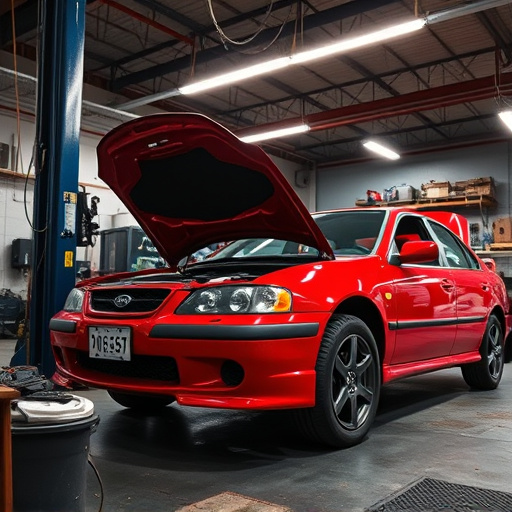
Tesla aluminum welding certification plays a pivotal role in ensuring quality assurance for vehicle repairs and restorations. With precision-engineered techniques and standardized procedures, certified professionals are equipped to handle intricate aluminum welds, setting a higher standard for repair work. This level of expertise is particularly crucial when addressing complex components found in modern automobiles, where even the slightest defect can impact performance and safety.
The certification process involves rigorous training and testing, ensuring that technicians possess the necessary skills to mitigate common issues like porosity, cracks, or uneven welding. By adhering to these certified methods, auto collision centers and paintless dent repair specialists can deliver superior results, minimizing the need for costly re-repairs. This commitment to excellence not only guarantees a more durable fix but also enhances the overall aesthetic appeal of vehicles undergoing repairs, whether it’s fixing a minor car scratch or addressing significant damage from an accident.
Tesla’s commitment to aluminum welding standardization through certification is a game-changer, addressing common repair issues head-on. By ensuring high-quality welds, this process not only enhances vehicle durability but also prevents aesthetic defects. The Tesla aluminum welding certification acts as a cornerstone for quality assurance, fostering trust in the repair process and ensuring that each restored vehicle meets the brand’s rigorous standards.
